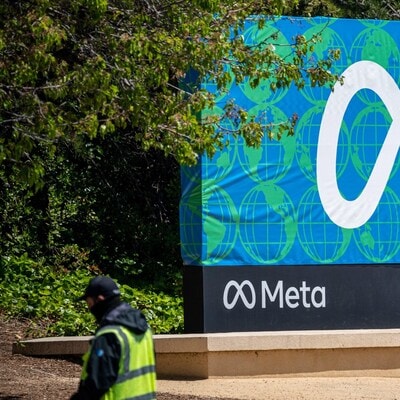By Kurt Wagner
Facebook parent Meta Platforms Inc. unveiled a new artificial intelligence tool that can generate or edit videos based on a simple text message, raising competition with rivals such as OpenAI and Google in the race to develop intelligence technology most advanced artificial in the world.
Click here to connect with us on WhatsApp
Meta’s product, Movie Gen, can create a new video up to 16 seconds long based on a text message. You can also use such prompts to generate audio or edit an existing video, or even use a photo to create a custom video with a real person.
Movie Gen is only available to some internal employees and a handful of external partners, including some filmmakers, although the social media company, which also owns Instagram, WhatsApp and Messenger, plans to add the product to its existing apps at some point in the future. next year.
Executives are still discussing how best to implement this integration, but the goal is for Movie Gen to encourage more people to create or edit video posts, said Connor Hayes, Meta’s vice president focused on generative AI products. It will be “fun to use, useful for creators, good for general app engagement, but we don’t have a concrete product plan for what it will look like right now,” he said.
The social media leader is one of many major tech companies pushing AI models focused on generating videos, which are more complicated and expensive to build than those that return AI-generated text. OpenAI, backed by Microsoft Corp., has its own video generation tool, called Sora, that debuted earlier this year and can create videos up to a minute long, although that technology is not yet available to the public. DeepMind, a subsidiary of Alphabet Inc.’s Google, also has a video generation tool, called Veo, that was introduced earlier this year.
Meta is waiting to launch Movie Gen for several reasons, including the efficiency of the technology. It currently takes “tens of minutes” to generate a video based on a text message, too long for general consumers who are likely to use it on their phone, Hayes said.
But Meta is also “solving a lot of really important issues around safety and liability,” Hayes said, including how to handle personalized videos so that a user can’t create an inappropriate or unflattering video with another person without their consent. “That will probably be the most important problem to solve before we can make customization capabilities available to the general public.” This type of technology has been used in the past to create misleading so-called deepfakes of famous people, including US President Joe Biden and pop star Taylor Swift, although Meta executives have said they are working on ways to watermark in these creations so that people can know that they were generated by AI.
Meta has made AI advancements a key priority for the entire company, and CEO Mark Zuckerberg has repeatedly talked about AI as a driver of user and revenue growth. In the short term, Zuckerberg has credited AI with helping improve the company’s content algorithms by showing people more relevant posts and ads. Over time, Zuckerberg has said he believes AI will play an even bigger role in powering his apps and other futuristic wearable devices Meta is producing, such as smart glasses.
©2024 Bloomberg LP
First published: October 4, 2024 | 20:51 IS
Disclaimer:
The information contained in this post is for general information purposes only. We make no representations or warranties of any kind, express or implied, about the completeness, accuracy, reliability, suitability or availability with respect to the website or the information, products, services, or related graphics contained on the post for any purpose.
We respect the intellectual property rights of content creators. If you are the owner of any material featured on our website and have concerns about its use, please contact us. We are committed to addressing any copyright issues promptly and will remove any material within 2 days of receiving a request from the rightful owner.

